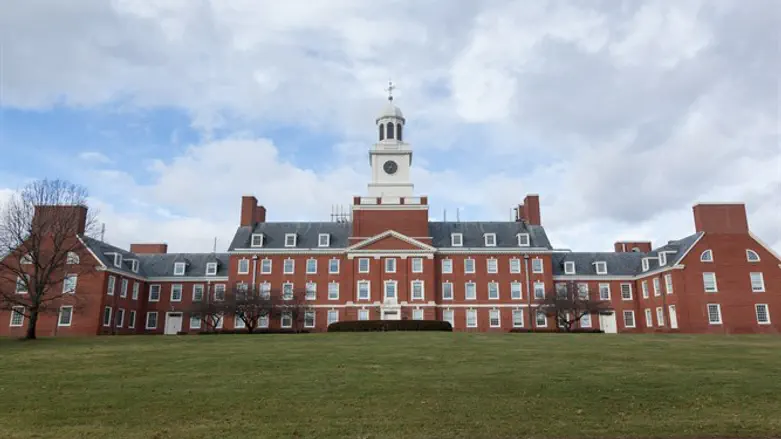
After condemning anti-Semitism in a letter on Wednesday, the chancellor of Rutgers University caved into pressure from a campus pro-Palestinian group and issued an apology for his earlier letter which denounced Jew hatred.
In his original letter, Chancellor Christopher J. Molloy said that he was “saddened by and greatly concerned about the sharp rise in hostile sentiments and anti-Semitic violence in the United States.”
The head of the New Jersey university wrote that “recent incidents of hate directed toward Jewish members of our community again remind us of what history has to teach us.”
Molloy then sought, as is the trend among progressives and left wing academics, to link denouncing anti-Semitism to overall prejudice in America, speaking about the murder of George Floyd and attacks on “our Asian American Pacific Islander citizens, the spaces of Indigenous peoples defiled, and targeted oppression and other assaults against Hindus and Muslims.”
He said that Rutgers has the opportunity to serve as a model for respecting the dignity of every human being.
“Although it has been nearly two decades since the U.S. Congress approved the Global Anti-Semitism Review Act, the upward trend of anti-Semitism continues,” he wrote. “We have also been witnesses to the increasing violence between Israeli forces and Hamas in the Middle East leading to the deaths of children and adults and mass displacement of citizens in the Gaza region and the loss of lives in Israel.”
He added, “This recent resurgence of anti-Semitism demands that we again call out and denounce acts of hate and prejudice against members of the Jewish community and any other targeted and oppressed groups on our campus and in our community.”
Molloy went on to call out bigotry and discrimination of “all forms” while condemning “vile acts of hate against members of our community” and “reaffirming value and dignity of each member of our Rutgers community regardless of religion, race, ethnic background, sexual orientation, gender, and ability.”
He also asked anyone impacted by anti-Semitic incidents on campus to contact counselling and support services.
Although Molloy denounced not just Jew hatred but discrimination of all forms, the campus group Students for Justice in Palestine at Rutgers was outraged by his letter. They posted a statement on social media denouncing the chancellor’s statement, saying they were “deeply concerned” and claimed his statement “exclusively” addressed only anti-Semitism and “conveniently (ignored) the extent to which Palestinians have been brutalized by Israel’s occupation and bombing of Gaza.”
In response, Molloy posted a follow-up letter titled “Apology.”
He wrote, “We understand that intent and impact are two different things, and while the intent of our message was to affirm that Rutgers–New Brunswick is a place where all identities can feel validated and supported, the impact of the message fell short of that intention. In hindsight, it is clear to us that the message failed to communicate support for our Palestinian community members. We sincerely apologize for the hurt that this message has caused.”
He added that “diversity must be supported by equity, inclusion, antiracism, and the condemnation of all forms of bigotry and hatred, including anti-Semitism and Islamophobia” and pledged “our commitment to doing better.”
“We will work to regain your trust, and make sure that our communications going forward are much more sensitive and balanced,” he concluded. “Our goal of creating a beloved community will not be easy, and while we may make mistakes along the way; we hope we can all learn from them as we continue this vital work together.”
